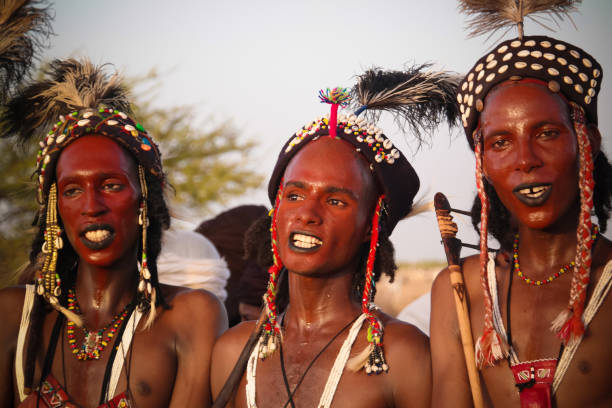In 1903 about a hundred years after the Jihad of 1804, British colonizing forces toppled the ancien Sokoto caliphate established by Othman dan Fodio following the defeat of Sultan Mohammed Attahiru in a place called Mbormi located in present day Gombe state. Rather than stay under British rule, Sultan Attahiru had chosen to flee to Sudan as did many of his followers and on his way the British caught up and killed him in a skirmish that followed.
This development set the stage for the trajectory of most of the current issues that collectively make up the Fulani question in Nigeria.
First of all with the coming of the British, the Fulani political and social aristocracy could no longer claim to be the exclusive masters of Northern Nigeria. That pride of place now resided with the British who proceeded to subsume the caliphate under the supervising authority of the British colonial administration. And although the British pragmatically decided to leave much of native administration in the hands of the Fulani aristocracy, they however took it upon themselves to tinker heavily with the ruling structure and content of the Fulani dominated native administration.
Secondly whereas the pre-colonial caliphate was driven largely by the ideological and doctrinal tenets of the Islamic faith, the caliphate under British colonial even as it lay claim to deriving its ideological direction from Islam, was to all intents and purposes and appendage of the Christian British colonial order from whence it derived its raison d’etre.
Out of this arose a fundamental contradiction of identity and relevance of the Fulani dominated caliphate under British colonial rule.
Can the caliphate continue to justifiably claim to uphold the tenets of Islam as its mission when it pledges allegiance and loyalty to the Christian British colonial power?
Essentially this is the kernel of the Fulani question in Nigeria.
The Emirate system designed by the British was ostensibly meant to strengthen the power of the Fulani aristocracy, but it also turned them into an appendage of the British principally to serve its colonial interest in Nigeria thus alienating them from the original Islamic identity and relevance that Usman dan Fodio meant them to be. In the process the emergent Fulani political aristocracy under the British designed Emirate system gradually began to lose touch with their essence and their mission in the context of the new Nigeria emerging under colonial rule.
The most obvious corollary of this development was the growing disconnect between urban based Fulani political aristocracy who become culturally and socially integrated into the urban Hausa society and structure they had supplanted on the one hand; and the pastoral, nomadic Fulani who to a large extent chose to remain and retain their original way of life contemptuously shunning what they see as dilution of their tradition and way of life.
This was in contrast to the pre-colonial caliphate, where the pastoral Fulanis were all too inspired and eager to identify and join the crusading Islamic efforts of Usman dan Fodio in their droves, in the process converting and practicing the Islamic faith.
Dr Aliyu Tilde in his seminal article lamented that over the years as a result of this divergence the Fulani ethnicity have come to run on two speeds separate and increasingly unequal in all ramifications of life; the urban based Fulani aristocracy with their social status and political power on the one hand, and the pastoralists and nomadic Fulani on the other with both contemptuous of each other.
The crisis of identity and relevance is more pronounced among the urban based Fulani aristocracy. They are Fulani by linguistic and ethnic definition, but having integrated fully into the Hausa culture over the years they are more of the latter. They claim and try to justify their status as custodians of Islamic doctrine and tenets but they are largely a creation of and identify more with their Christian British creators in virtually all aspects of life.
Mired in this profound crisis of identity and relevance the Fulani aristocracy have found it difficult to connect and concretely justify the religious leadership it claims as its essence; and also to even find and plant its foot firmly and permanently in the Nigerian political firmament.
The Fulanis have thus collectively become prisoner to their history. The Urban Fulani aristocracy justifies its status and power dating back to 1804 when Othman dan Fodio led the Fulanis to take over Northern Nigeria. The pastoralist and nomadic Fulani by the same token have also come to believe that Northern Nigeria and by extension Nigeria is theirs by the same conquest of 1804 thus giving them the unchallenged right to establish and practice their way of life everywhere in Nigeria regardless. Between the urban Fulani and pastoral nomadic Fulani there has thus developed a misplaced superiority complex over other Nigerians which they both strive to justify as a matter of historical right. Thus many among the Fulani elite will for instance justify open grazing of livestock and the primitive conditions of pastoral and nomadic Fulanis on the altar of defending what they believe is a way of life that other Nigerians which they regard as being of less cultural and historical pedigree than the Fulanis are not qualified to ask.
If discerning Fulanis are aware of the dysfunctionality in their society their attitude to it has not been helpful to the Fulani cause generally.
For all their political and social status in Nigeria, the urban Fulani have done very little to improve the lot of the pastoral and nomadic Fulani. Indeed the first serious attempt to provide a template for the integration of pastoral and nomadic life was through education was provided by an Igboman Professor Chima Uzoma of the University of Jos. That was before Professor Jibril Aminu followed it up as a national policy which unfortunately was abandoned.
Failure through acts of omission and commission by the urban Fulani aristocrats over the years to initiate the integration of the nomadic Fulani into the emerging modern Nigerian society lies at the root of the Fulani question raging in Nigeria today. The issue has now been exacerbated by the external factors of climate change and population growth leading to paucity of grazing lands to support the nomadic life of the pastoral Fulani. There is also the gradual breakdown of their socio-cultural fabric which results in further alienating the nomadic Fulani from their urban kith and Kin as well as the larger Nigerian society of non-Fulanis.
Some among the pastoral Fulanis have reacted to these developments by resorting to what is now attributed to them. They simply do not care a damn about a country that they are largely alienated from and which views them and their ways with contempt. A country they feel ought to be theirs to own and use without let or hindrance by virtue of what they believe was their conquest of it in 1804.
Without doubt the Fulani question is the most challenging in the country at the moment not least being the fact that the Fulanis are the most politically prominent ethnicity in Nigeria. And the starting point to its resolution must come from the politically powerful Fulani elite in Nigeria. For their sake and Nigeria’s they must make the effort to free themselves from being continuous hostage to their history which deprives them from facing the challenges of our contemporary life as Nigerians collectively. (Concluded)

 Join Daily Trust WhatsApp Community For Quick Access To News and Happenings Around You.
Join Daily Trust WhatsApp Community For Quick Access To News and Happenings Around You.


